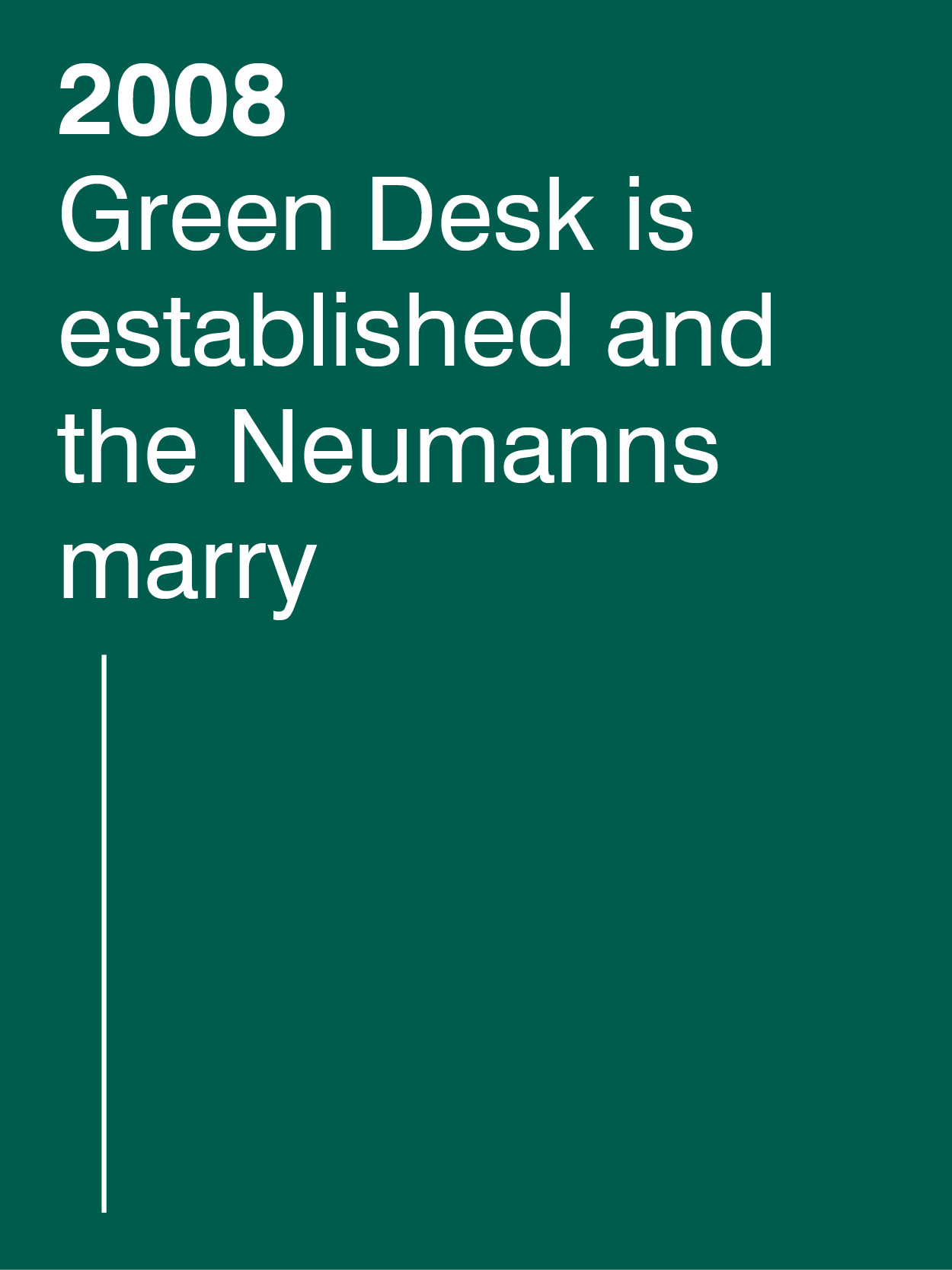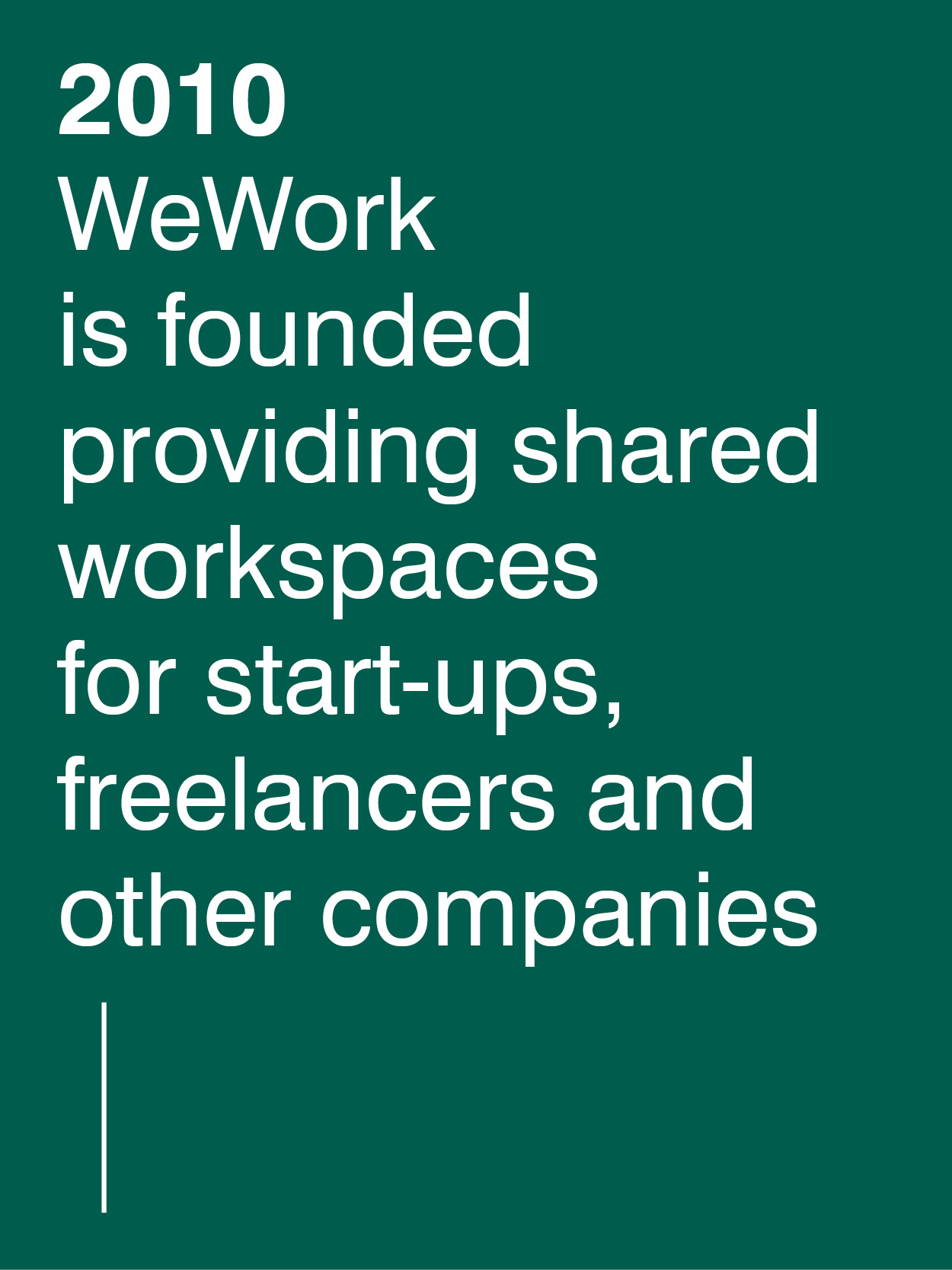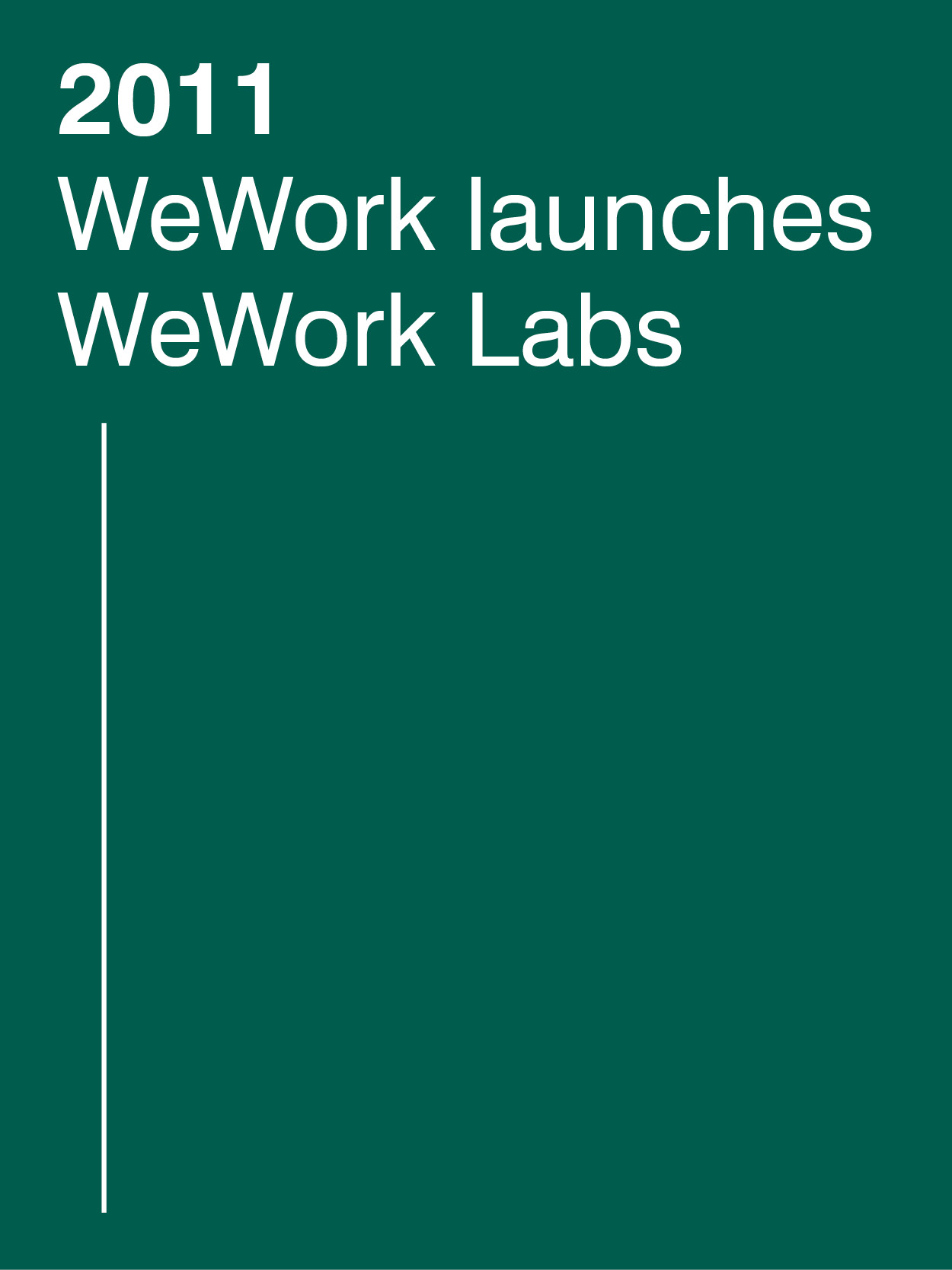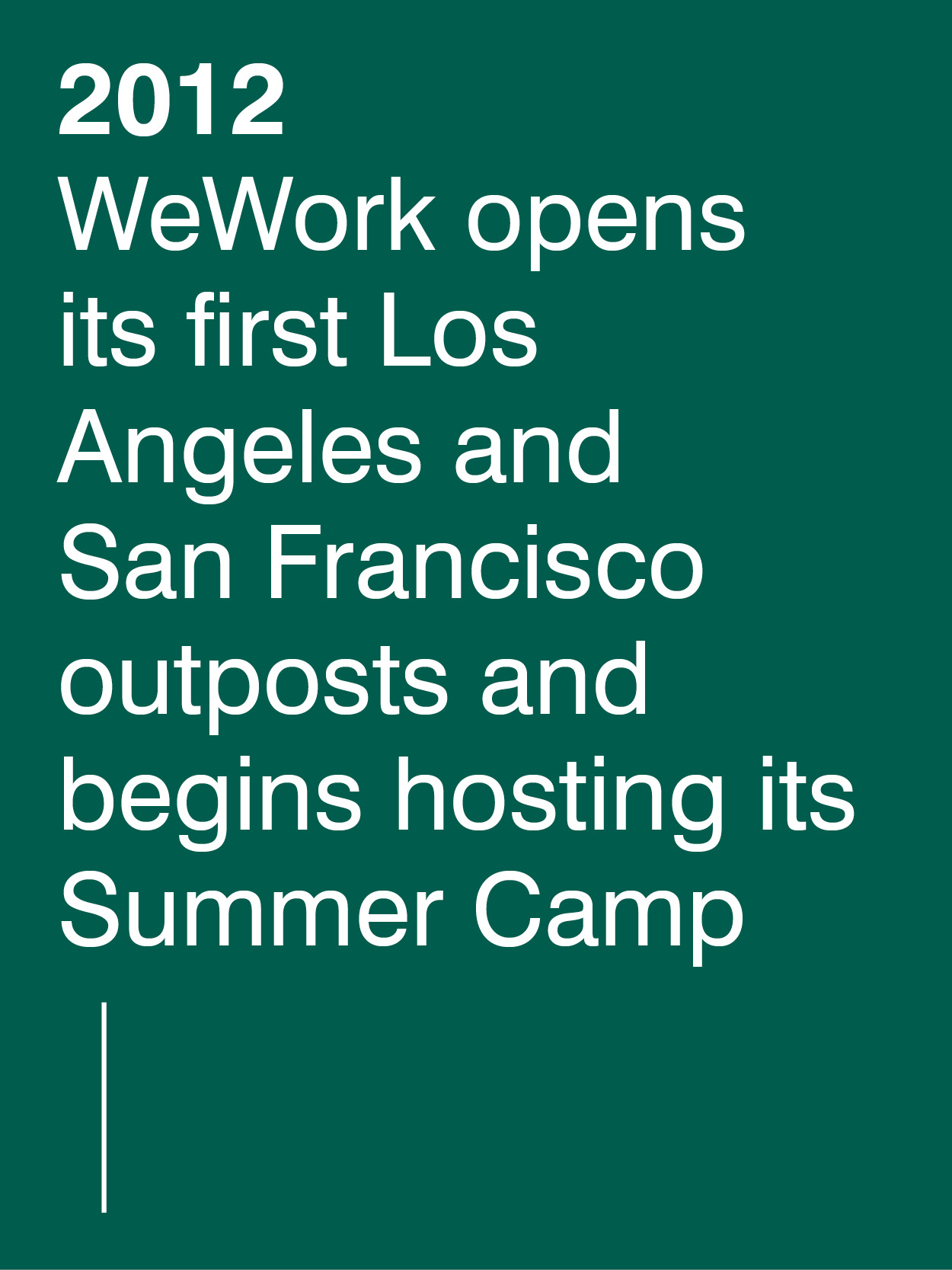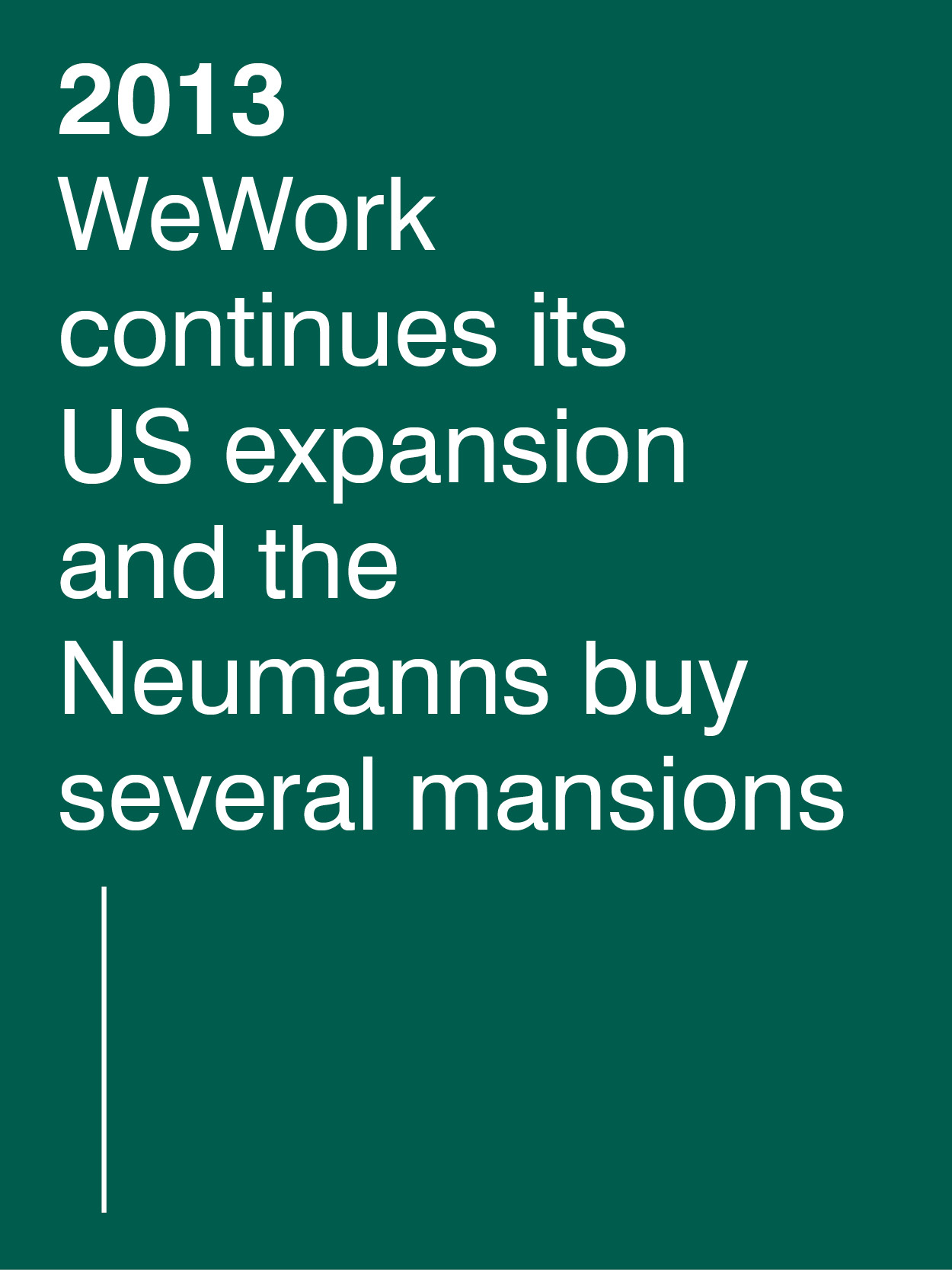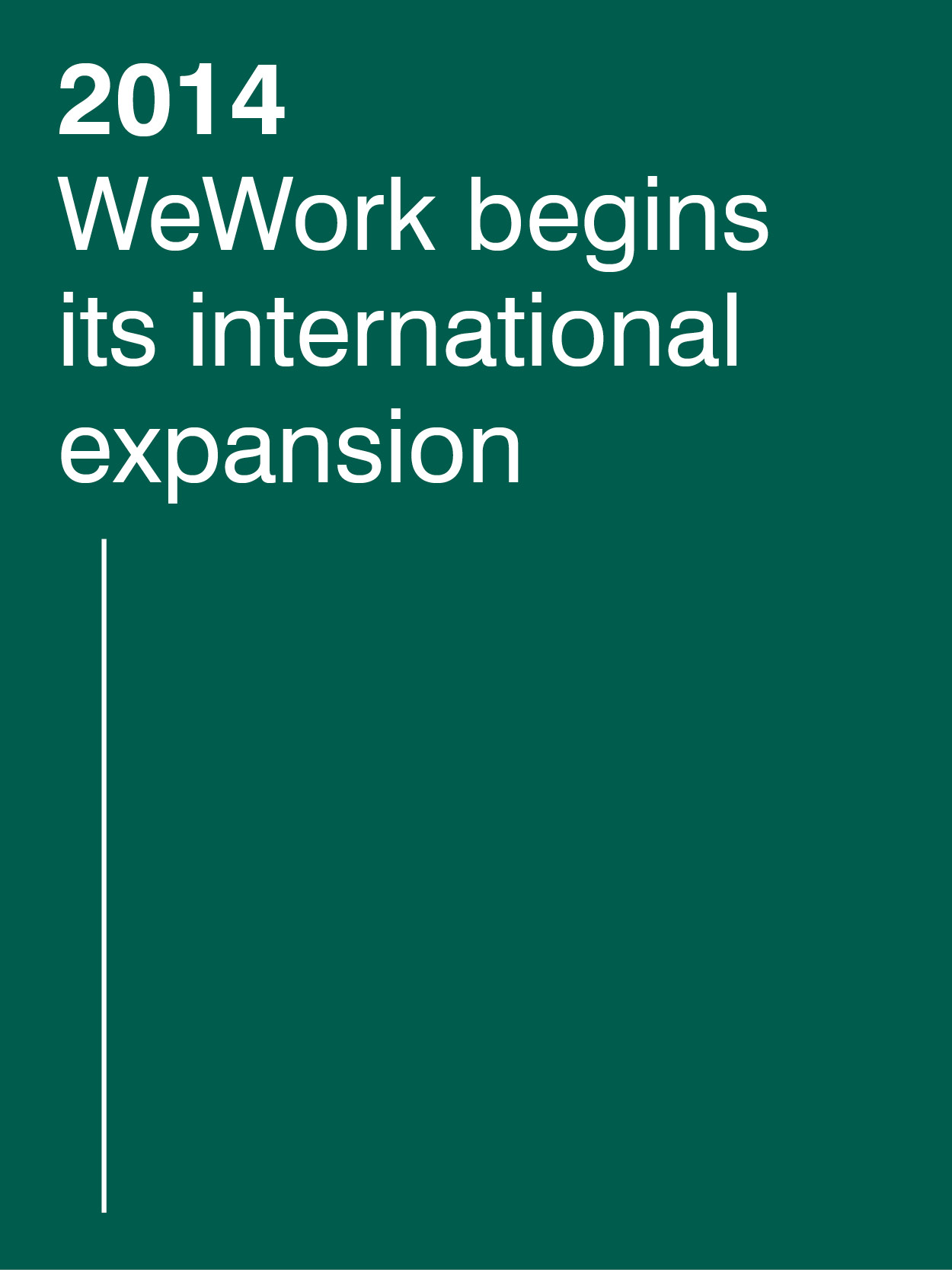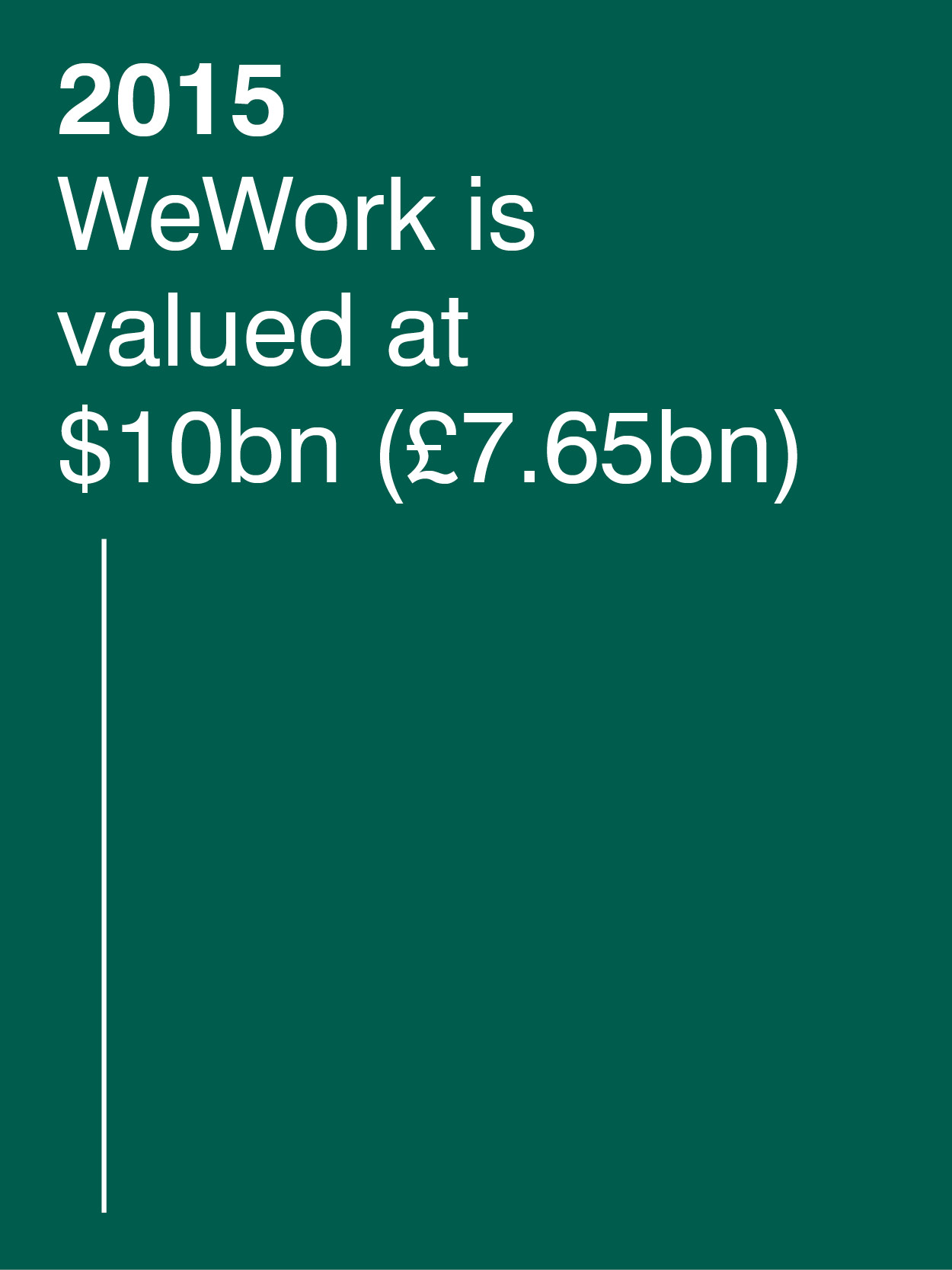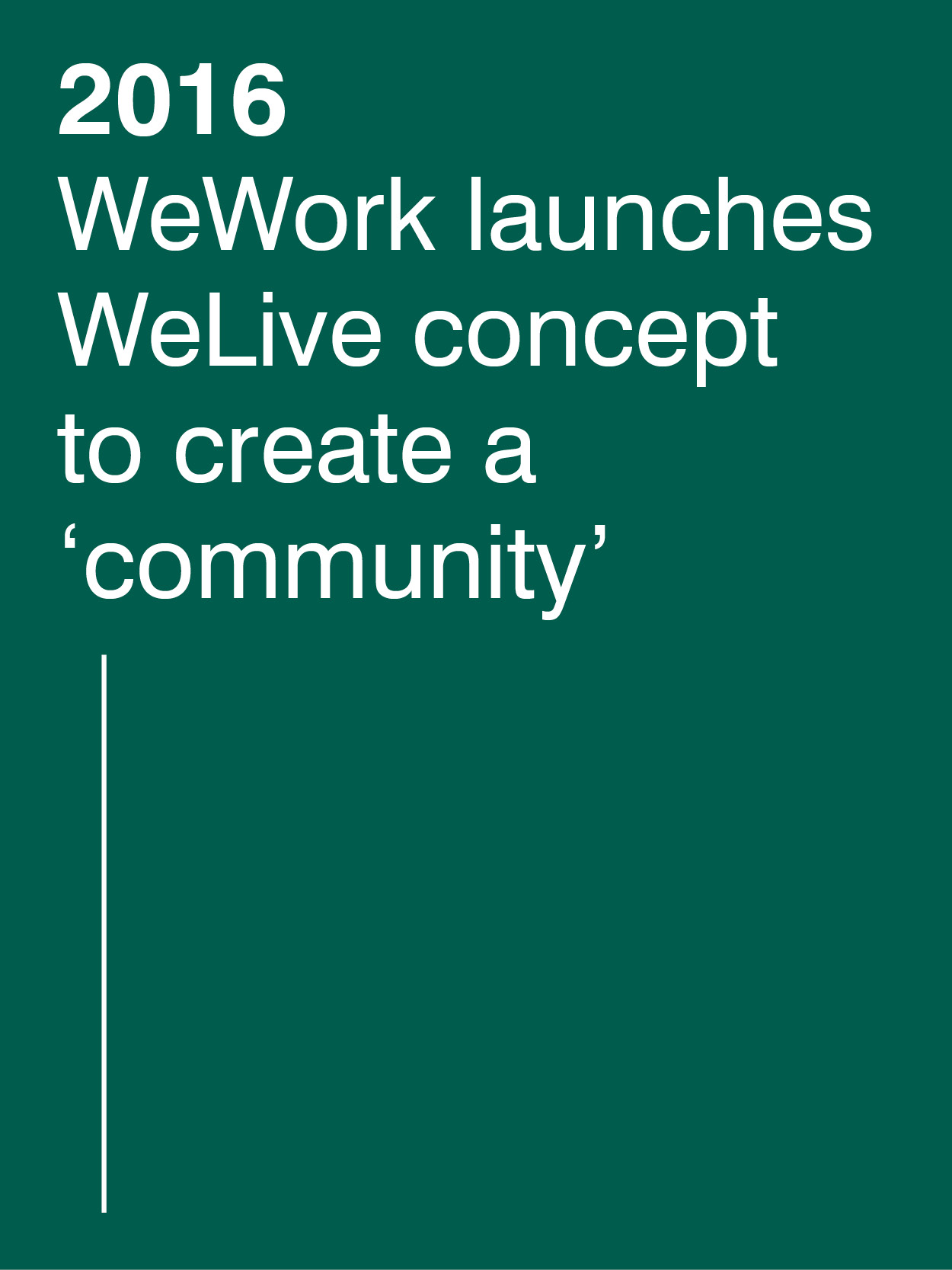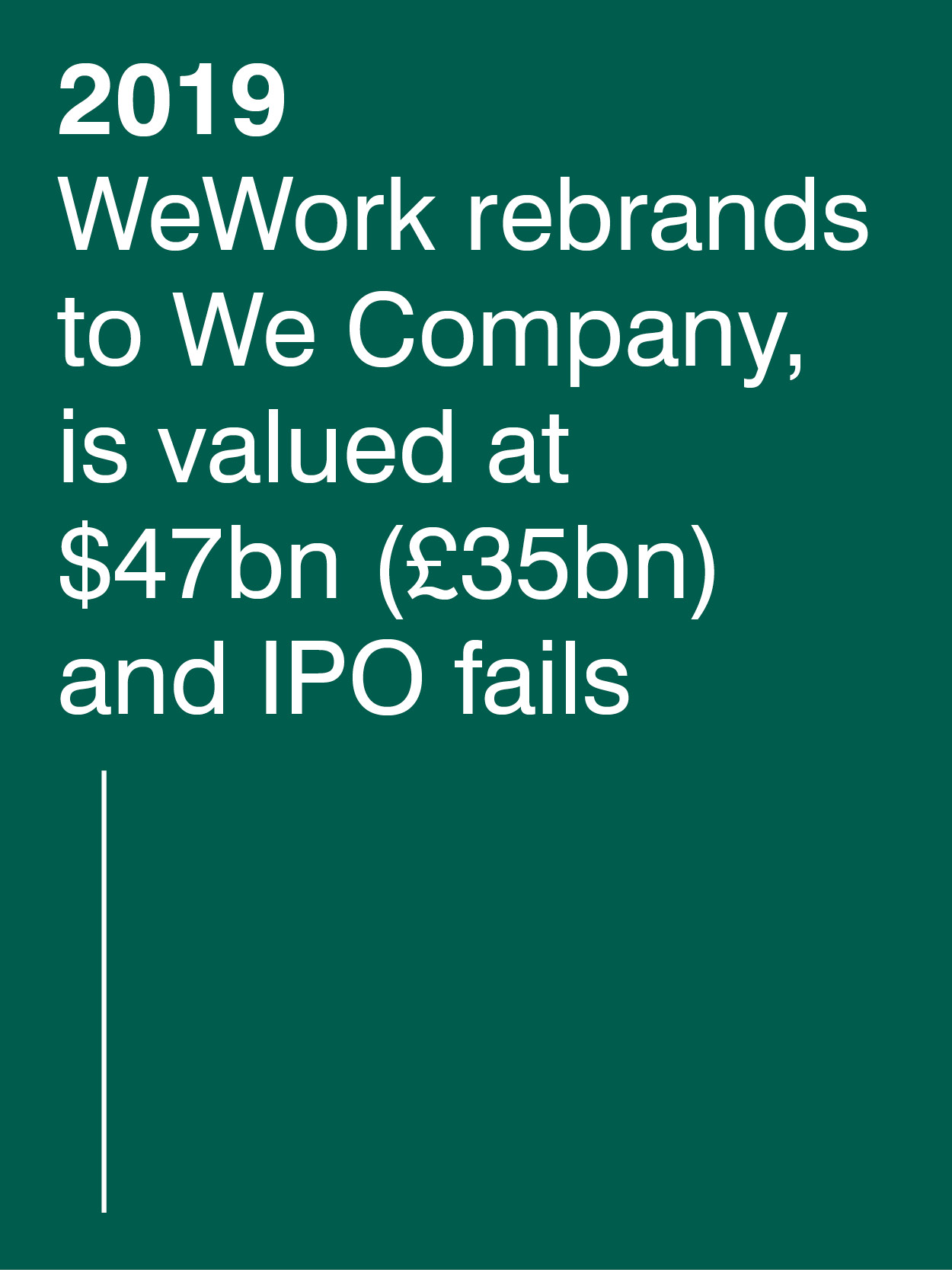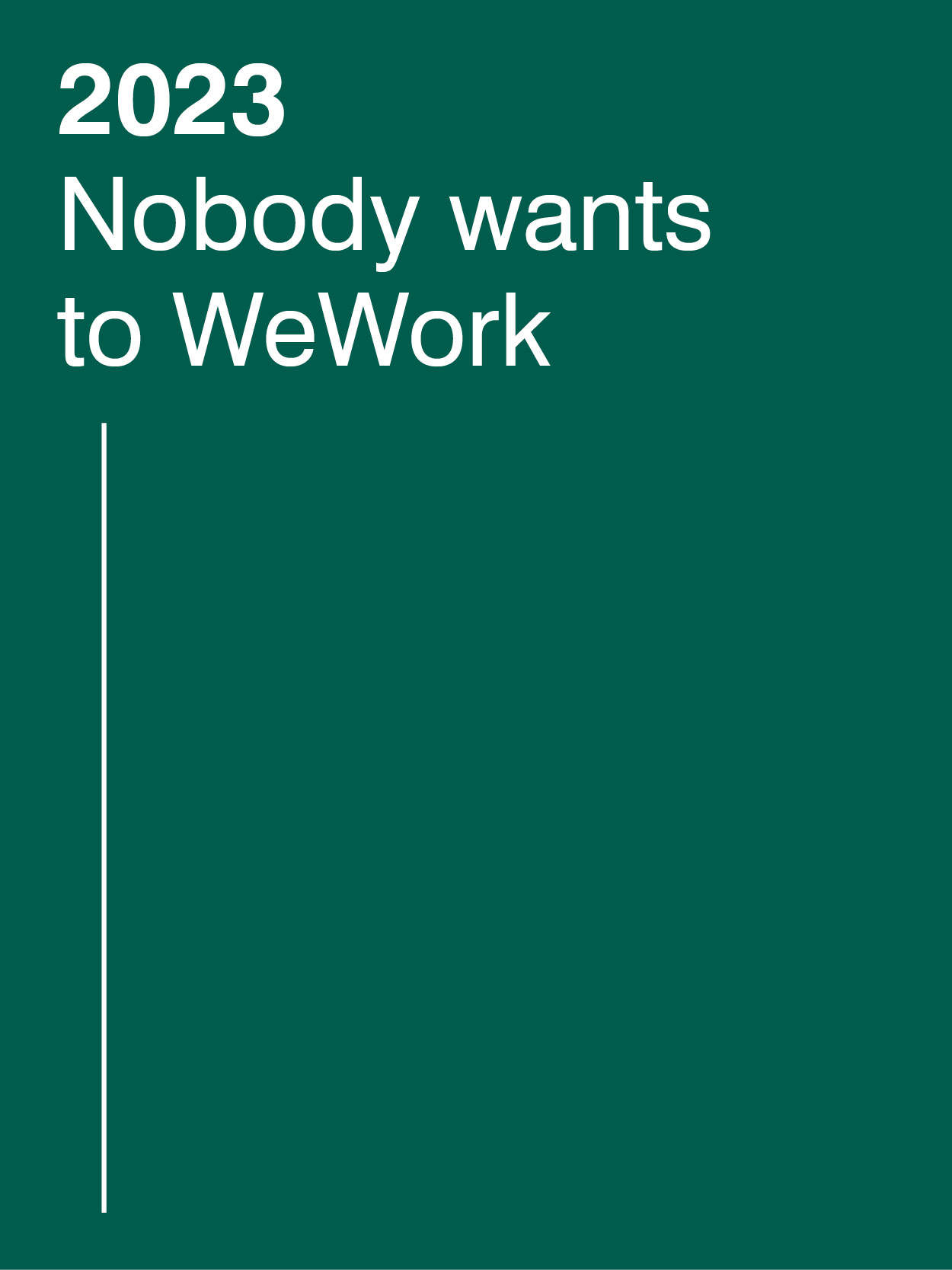Charismatic co-founder of WeWork, Adam Neumann, has recently reappeared and seems poised to return to the company. Here is a recap on the inflexible and outdated work culture that lay behind WeWork's flexible, modern office spaces, before the former CEO's ousting.
|
Adam Neumann and architect Miguel McKelvey start Green Desk, an “eco-friendly co-working space”. They sell Green Desk 2010.
Rebekah Neumann invests $1m in WeWork. She says: “I’m responsible for all of the messaging, the mission, the values.”
|
|
Its spaces are revered for being modern and “Instagrammable” (even before Instagram was a thing), with sleek wooden floors, community lounges, ping pong tables and neon signs with slogans like “Hustle Harder” and “Make It Happen”.
|
The labs function as a “start-up incubator”, providing a workspace for those looking to develop a start-up company but who “don’t have their business ideas fully cooked”.
|
The annual Summer Camp is a mandatory three-day “networking and music” event for employees.
|
Employees are also expected to attend weekly ‘Thank God It’s Monday’ parties, often continuing into the early hours.
From stage at Summer Camp, Neumann says: “Every one of us is here because it has meaning, because we want to do something that actually makes the world a better place. And we want to make money doing it!”
|
WeWork has seen quick and exponential growth. It has 200 employees, 1.5m sq ft of space and 10,000 members.
|
In 2014, WeWork opens its first international office in London, on the South Bank.
One former employee told Vanity Fair: “We would joke that we worked like slaves. Adam would have meetings on Sunday, and you could never miss those. And sometimes it wouldn’t happen, or it’d happen hours late and you’d be there all night. You’d cry in the bathroom all the time.”
In a 2016 interview with Fast Company, Rebekah revealed how intertwined the Neumanns were with WeWork: “We don’t have a line at all between work and life. It’s not even a blurred line. There is no line.”
According to Bustle, as WeWork grew, “Adam expected deputies to show up for Kabbalah meditation classes and tequila-addled midnight meetings, and their children opened up lemonade stands in the office”.
The 2013 Summer Camp features a panel event where the Neumanns speak about the success of their relationship. One attendee told The New Yorker: “I was kind of grossed out by this whole religious, heteronormative undertone to everything.”
|
In the month following We Company filing its IPO, the valuation is cut to $10bn (£7.65bn). Adam Neumann is removed as CEO and the IPO is delayed indefinitely.
|
In November, WeWork fires 2,400 employees.
|
Following more losses due to the pandemic and the rise of home working, WeWork begins to re-build itself.
Reflecting on his management style, Neumann has said that WeWork had a “fun culture”.
|
Following the recent resignations of its CEO, CFO and treasurer and several board members this year, WeWork’s second-quarter earnings release stated: “Substantial doubt exists about the Company’s ability to continue as a going concern.”


